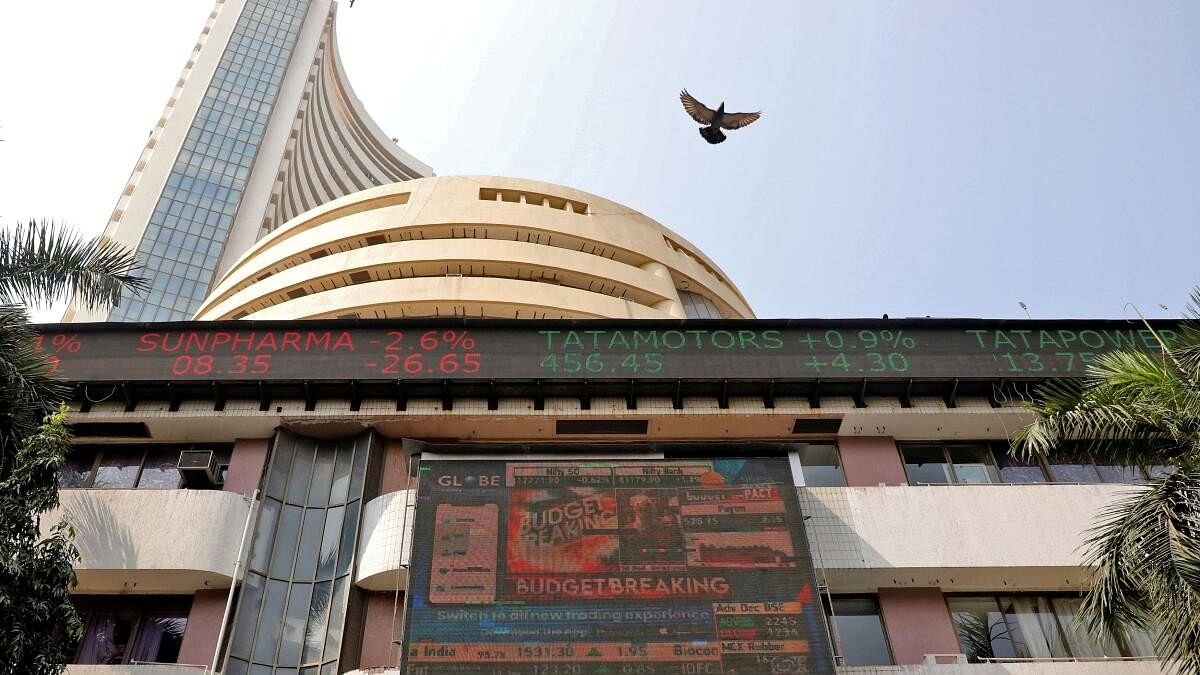
The Bombay Stock Exchange (BSE) building in Mumbai. (Representative image)
Credit: Reuters Photo
Bengaluru: On the back of uncertainties tied to the outcome of the ongoing general election, investors on the Bombay Stock Exchange lost Rs 7.35 lakh crore on Thursday.
Both the benchmark indices — BSE Sensex and Nifty 50 — fell over 1.5 per cent to register their worst performance since March 2, as the Nifty India Volatility Index reached its highest levels since October 2022.
“Our market’s behavior remains distinct from global counterparts, experiencing significant pressure due to participants opting for lighter positions ahead of the impending Lok Sabha election results,” said Angel One Technical Analyst Rajesh Bhosale.
The election-linked nervousness in the markets reflected in the Volatility Index (VIX). On Thursday, India VIX, also known as the ‘Fear Index’, rose for the 11th consecutive session, hitting its highest reading in 19 months. The India VIX has gained to around 88 per cent from its low in late-April.
“The market is currently in a state of uncertainty, largely due to the subpar voter turnout in the third phase of the elections,” Vipul Bhowar of Waterfield Advisors elaborated.
While the markets have largely factored in a BJP/NDA victory in the 2024 Lok Sabha elections, the current volatility arises from concerns regarding a clear majority, experts echoed.
Declining for a third straight session, the 30-share BSE Sensex dropped 1,062.22 points or 1.45 per cent to settle at 72,404.17. Barring automotive stocks, all sectoral indices clocked losses.
The market capitalisation of BSE-listed companies eroded by Rs 7.35 lakh crore to Rs 393.63 lakh crore.
“A moderating earnings landscape for the March quarter has also been a sentiment dampener, even as the belief in the India growth story stands firm,” underscored Nirav Karkera, who heads research at financial services provider Fisdom.
The Nifty 50 shed 345 points or 1.55 per cent to end its fifth consecutive session in the red, at 21,957.50. “Nifty is expected to slide down further in the short term,” opined Nagaraj Shetti, Senior Technical Research Analyst, HDFC Securities.
“In 2014 and 2019, the volatility was much higher and sustained,” said Karkera. Furthermore, currently the nervousness is more prominent in the trading and short-term investor circuits as opposed to retail investors, he added. Indeed, data analysed by DH shows that the India VIX had risen to even higher levels before the last two general elections.
The biggest laggards in the Sensex basket were L&T, Asian Paints, JSW Steel, ITC, Bajaj Finance and IndusInd Bank. Meanwhile, foreign investors offloaded securities worth Rs 6,995 crore, according to exchange data.
In the absence of a near-term positive trigger, the volatility is likely to continue until June 4, when the polling outcome is due.
“It’s prudent to maintain a cautious stance as we approach the pivotal event. Therefore, bottom fishing should be avoided until clear signs of reversal emerge,” Bhosale remarked.